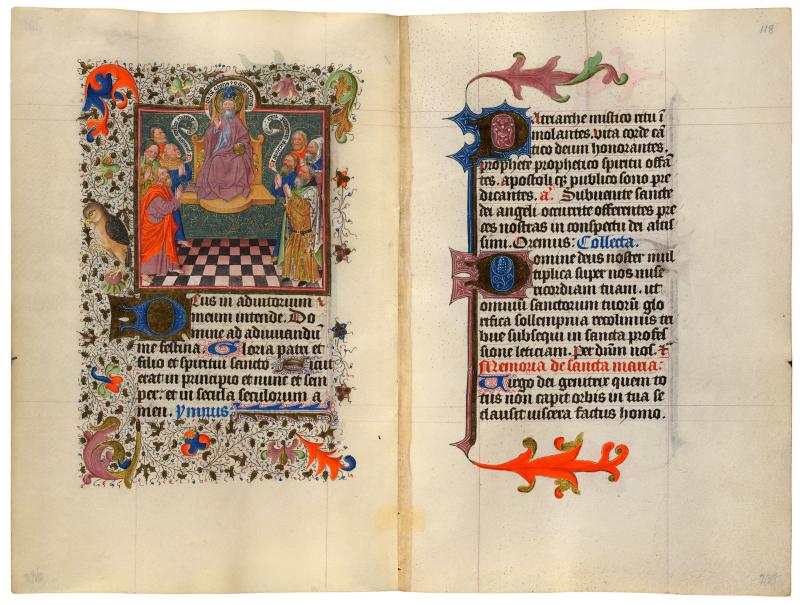
Apostles and Prophets before the Throne of God
Purchased on the Belle da Costa Greene Fund with the assistance of the Fellows and with special assistance of Mrs. Frederick B. Adams, Sr., Mrs. Robert Charles, Mr. Laurens M. Hamilton, The Heineman Foundation, Mrs. Donald F. Hyde, Mrs. Jacob M. Kaplan
The small miniatures for the Hours of All Saints group the elect according to Church hierarchy. This image for Terce includes the apostles on the left—barefooted, bareheaded, and simply dressed. On the right are the prophets—shod and somewhat exotically garbed. Identifying each group are scrolls with texts from the Te Deum, the hymn of praise that the angels sing in the Lauds miniature from the Hours of the Virgin. God's scroll proclaims, "I am the alpha and omega, God and man."
